
TRANSFERRING fledged and weaned offspring away from their parents is fraught with peril. You must monitor those recently moved birds with close attention. This is because they can “go backwards” quickly and stop feeding completely or sufficiently to properly nourish themselves. This can be down to several factors including the stress of a new environment, bullying from other birds and not being able to find their way to the feeders in the cage.
It is important to offer babies as many food options as possible in easily accessible feeders. Some youngsters will take to cracking certain seeds over others, so the wider the variety on offer, the more chance you give them. High energy seeds, such as groats, are a good idea and I also give my babies Japanese millet and lots of millet sprays. These are widely accepted and the birds can consume them easily.
Having had a very average breeding season this year, I have placed an even greater focus than ever on the journey my 2019 babies have taken from the breeding cage perch to adult flight.
Bu hikaye Cage & Aviary Birds dergisinin October 09, 2019 sayısından alınmıştır.
Start your 7-day Magzter GOLD free trial to access thousands of curated premium stories, and 9,000+ magazines and newspapers.
Already a subscriber ? Giriş Yap
Bu hikaye Cage & Aviary Birds dergisinin October 09, 2019 sayısından alınmıştır.
Start your 7-day Magzter GOLD free trial to access thousands of curated premium stories, and 9,000+ magazines and newspapers.
Already a subscriber? Giriş Yap
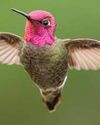
The World's Best-Known Hummingbird?
Intensively studied, the gem-like Anna’s hummingbird is a welcome visitor to the gardens of America’s most populous state: California. Bill Naylor investigates its life history
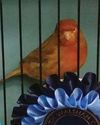
The charm of the English Cinnamon
Despite its long and complicated history, the true Cinnamon canary is still with us – in the hands of a tiny group of breeders. DONALD SKINNER-REID reckons it deserves wider appreciation
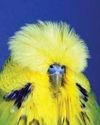
Spangles: a personal overview
FRED WRIGHT relates a budgie story of over-exploitation, consequent problems and abundant potential for the future

New converts to old breeds
Old and rare canaries have a reputation for adding fresh interest and challenge to the hobby. PETE HOOK and NICK JOY agree, and explain the birds’ charm to Dave Brown

Themed aviaries are a hit with the public at annual Stafford show
DECORATIVE AVIARY DISPLAYS from a CBS and an online bird keeping advice group were voted in the top three by visitors for the inaugural Stafford Aviary Competition.
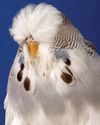
Pieds with potential
More than just a lesser variety, the dominant pied will introduce challenge and change into most studs, reckons CLIVE WAKEMAN. Here he discusses pairings to try and others to avoid
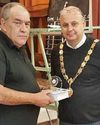
Club News
Welcome to the club and show pages – the bit that’s all about you Results: convention, specialist & rare and Breeder of the Year
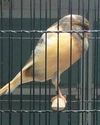
Canaries Month by Month:
With Christmas around the corner, BRIAN KEENAN is well into his winter programme, and reckons he might deserve a nice outcross
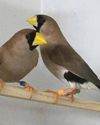
Smart Choice, Docile Nature
Dave Brown welcomes the masked grassfinch to his birdroom and shares advice on this lovely Australian species
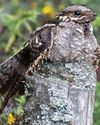
The truth about the ‘flying toad'
Odd local names and weird superstitions can’t hide the beauty and elegance of the nightjar, a species that has made a fascinating subject in a few zoo collections, reveals BILL NAYLOR